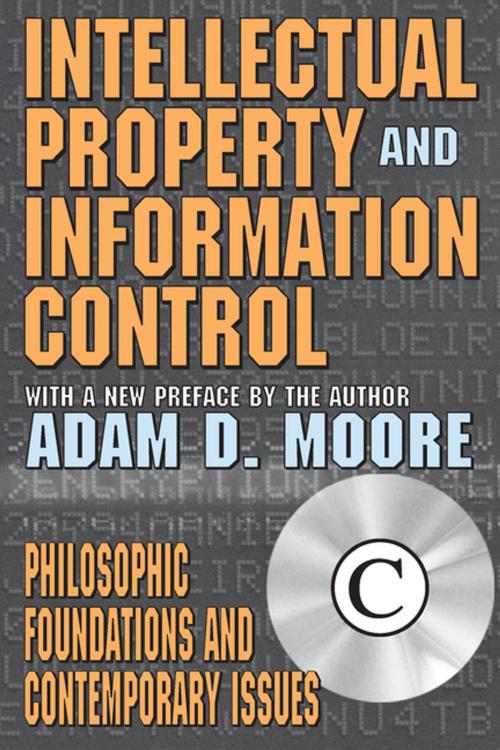Intellectual Property and Information Control
Philosophic Foundations and Contemporary Issues
Nonfiction, Reference & Language, Law, Intellectual Property, Social & Cultural Studies, Social Science, Sociology| Author: | Adam Moore | ISBN: | 9781351512138 |
| Publisher: | Taylor and Francis | Publication: | September 4, 2017 |
| Imprint: | Routledge | Language: | English |
| Author: | Adam Moore |
| ISBN: | 9781351512138 |
| Publisher: | Taylor and Francis |
| Publication: | September 4, 2017 |
| Imprint: | Routledge |
| Language: | English |
Computer technology and the proliferation of digital networks have radically altered how ideas and information are gathered and manipulated and generated new conflicts between public use and private rights. These conflicts raise serious problems: Are abstract ideas and information proper subjects of ownership? What role should privacy rights play? How does the violation of intellectual property rights compare morally to the violation of physical property rights? Now available in paperback, Intellectual Property and Information Control provides answers and strategies for dealing with these and other questions while mounting a philosophical defense of rights to intellectual and intangible property.As the book shows, a policy that allows too much access may stymie innovation and cause individuals to isolate themselves. At the other extreme, huge, multinational corporations may hold as intangible property vast amounts of knowledge, including sensitive personal information. Through discussions of patent law, fair use, and practical problems such as privacy in the workplace, Moore demonstrates that intellectual and intangible property rights exist along with privacy rights. The latter will sometimes constrain what can be done with the former.
Computer technology and the proliferation of digital networks have radically altered how ideas and information are gathered and manipulated and generated new conflicts between public use and private rights. These conflicts raise serious problems: Are abstract ideas and information proper subjects of ownership? What role should privacy rights play? How does the violation of intellectual property rights compare morally to the violation of physical property rights? Now available in paperback, Intellectual Property and Information Control provides answers and strategies for dealing with these and other questions while mounting a philosophical defense of rights to intellectual and intangible property.As the book shows, a policy that allows too much access may stymie innovation and cause individuals to isolate themselves. At the other extreme, huge, multinational corporations may hold as intangible property vast amounts of knowledge, including sensitive personal information. Through discussions of patent law, fair use, and practical problems such as privacy in the workplace, Moore demonstrates that intellectual and intangible property rights exist along with privacy rights. The latter will sometimes constrain what can be done with the former.















